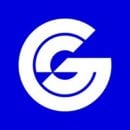Andrew Lum believes that engineers who are eager to land their “dream” job should treat their past experiences like a scrapbook.
In drawing from their professional memories, engineers can share stories with hiring managers as if they’re talking to a friend. Storytelling is central to Lum’s interviewing approach, and it’s what helped him land a role at Findigs, where he currently works as an engineering manager.
For him, working at Findigs feels like a dream because of its culture, which is defined by high trust, prioritized values and open communication.
“If you want meaningful work and real opportunities for growth, Findigs is a wonderful place to build things that matter,” Lum said.
There are many different qualities that can set an engineering candidate apart, whether that’s a knack for storytelling — or having the right experience. When Software Engineer Nitya Tammana was recommended for a position at Genius Sports, her background in infrastructure engineering and her ability to navigate complex systems helped her stand out. And since stepping into her role, she has been able to build the career of her dreams, thanks to impactful work — and supportive peers.
“I’ve had the chance to work on high-priority projects because I spoke up about where I wanted to grow, and I was fortunate to have teammates and leaders who listened and helped make that possible,” Tammana said.
Below, Lum and Tammana, along with two other engineering professionals at MongoDB and Garner Health, share how they landed their “dream” jobs, what they enjoy the most about their current roles and their advice for other engineers eager to follow in their footsteps.

MongoDB’s multi-cloud database is designed to enable teams to easily build and deploy applications.
What makes your current role a dream job? What do you get to do that you didn’t at other companies? What perks/value-add do you see as the most beneficial?
My role is a mix of managing people, including being responsible for their growth, development and performance, and leading technical projects, such as writing designs, code and tests. Time spent on technical work keeps me attuned not only to what’s ailing our customers but also to the challenges of fixing those things. In turn, I can better support my reports, empathizing with them about the difficulty of their work while also helping them through technical problems. I had been exclusively a people manager for a while and an engineer before that, and I was eager to mix people and technology every day, which isn’t a role that every company offers. Luckily for me, MongoDB does!
“Time spent on technical work keeps me attuned not only to what’s ailing our customers but also to the challenges of fixing those things.”
What do you think helped you land the job? Were you able to bring any special expertise or project experience that MongoDB found valuable?
I’ve been fascinated by databases since I was a university student, and I spent a lot of my free time learning about them, so in addition to being enthusiastic about working in this space, I had some relevant technical experience. I had worked on large enterprise systems — both legacy and greenfield — in fintech and finance and had even used MongoDB in production, so I was familiar with enterprise needs like security, durability, availability and performance.
What do you think helps engineers move up quickly or be the top pick for a competitive employer? What should engineers seek out if they hope to move up or be hired by their “dream” company?
I think that genuine excitement about the role that you want or the role that you’re in plays a large part in your success. If you’re looking for your “dream” company, you have to start with what interests you because that’s what’s exciting, and a good indicator of that is what you do in your spare time. Once you identify your “dream” company, you need to find a role there that fits your skills and experience. The best indicator of a match is that you have experience doing the work required in the role. If you’re looking for your first job or you are changing fields, spending your free time practicing the role is another strong signal that you could meet your “dream” company’s needs.
Genius Sports’ software captures sports data, helping sports teams, leagues and other organizations enhance their performance and ensure their fans are connected to the right content.
What makes your current role a dream job? What do you get to do that you didn’t at other companies? What perks/value-add do you see as the most beneficial?
One of the things I value most about my current role is the ability to genuinely shape the company’s evolution, especially in our New York office. I’ve had the chance to help build and influence the office culture, which has made the work feel meaningful beyond just the technical aspects. Unlike other companies I’ve worked at, this environment empowers engineers not just as contributors, but as collaborators in how the company grows. I get to be involved in conversations that are impactful, which is both rare and fulfilling. We’re also supported with flexibility, strong mentorship and real trust in our technical decisions. Having the autonomy to choose projects aligned with my goals and seeing leadership listen and act on feedback makes this role feel great.
“Having the autonomy to choose projects aligned with my goals and seeing leadership listen and act on feedback makes this role feel great.”
What do you think helped you land the job? Were you able to bring any special expertise or project experience that Genius Sports found valuable?
I was referred to work at this company by someone I’d worked with closely in the past and who had also been a mentor to me. His recommendation meant a lot not just because of our shared history, but because he spoke highly of the company’s culture and values — and everything he said turned out to be true. I believe what helped me stand out initially was my background in infrastructure engineering and my ability to navigate complex systems. But what’s helped me grow within the company has been my curiosity and openness to learning. I’ve always tried to adapt to the needs of the team and take on work that aligns with my long-term goals. I’ve had the chance to work on high-priority projects because I spoke up about where I wanted to grow, and I was fortunate to have teammates and leaders who listened and helped make that possible.
What do you think helps engineers move up quickly or be the top pick for a competitive employer? What should engineers seek out if they hope to move up or be hired by their “dream” company?
The biggest differentiators I’ve seen are curiosity, adaptability and initiative. The engineers who grow the fastest aren’t always the ones with the most years of experience — they’re the ones who are constantly learning, asking questions and contributing ideas, even in spaces outside of their immediate scope. Companies notice when someone is proactive, communicative and genuinely cares about the product and the people. To stand out to a competitive employer, seek out roles or projects that challenge you, work with people who inspire you, and don’t be afraid to ask for feedback or help. Be intentional about the kind of environment where you’ll thrive — whether that’s technical growth, culture or mentorship — and look for companies that align with that vision.
Employers can partner with Garner Health to enable their employees to find local in-network providers.
What makes your current role a dream job? What do you get to do that you didn’t at other companies? What perks/value-add do you see as the most beneficial?
What I’ve really appreciated about Garner is that I finally feel like I have the space to think. I’ve told my closest confidants that I feel like I’m in the most natural “fit” for the value I bring to the table at Garner. Systems thinking is part of the culture here. We’re not just checking boxes or rushing to ship. We’re expected to ask hard questions, challenge assumptions and actually work through problems. And when ambiguity exists, we spend the time bridging the gap with a systematic solution instead of rushing through the one-off problem.
“We’re expected to ask hard questions, challenge assumptions and actually work through problems.”
There’s a level of honesty that’s unique here. People don’t operate in back channels. If something’s off, we talk about it. It’s not always comfortable, but it means we’re solving the real problems, not just managing perception. The mission is actually something we can get behind, not just “corporate speak.” I also get to develop my team in a meaningful way. There’s room to give people stretch opportunities and the support to help them grow into it. That’s been one of the most rewarding parts of the job for me. The greatest perk is that growth-driven mindset in all of the leaders I’ve encountered here.
What do you think helped you land the job? Were you able to bring any special expertise or project experience that Garner Health found valuable?
I think what helps me is my focus on management as a craft rather than a burden. Small things like investing in my remote A/V quality signal that I care about details and excellence. I had a strong track record as a manager, but more than that, I was able to articulate how I think — how I break down systems and problems, how I lead teams through ambiguity, make tradeoffs visible, and forecast the future. That gave Garner confidence for how I’d operate in team contexts.
They were also looking for someone who could build trust quickly across engineering, product and leadership after some tough projects. I’ve seen some tough projects in my time, involving getting people aligned around real constraints and shared goals, consistent processes that don’t bog you down in unnecessary paperwork and a focus on people. I came in with examples of what I would do in these scenarios, and these things just “fit.”
There wasn’t a single “hero project” that sealed it. It was more that my way of working matched what they were trying to build: a thoughtful, accountable culture where growth and performance are the status quo. High performance isn’t about pulling 80-hour weeks — it’s a mindset of excellence.
What do you think helps engineers move up quickly or be the top pick for a competitive employer? What should engineers seek out if they hope to move up or be hired by their “dream” company?
Focus on ownership, responsibility, growth and outcome orientation. Don’t wait on your manager to start the career conversation; no one should care more about your career than you do! Make it clear what your goals are, and ask for feedback on what your leaders and peers think would hold you back from those goals.
Learn to build and cultivate relationships. Most of what people call “politics” (with a glare) is really basic relationship management and trust-building. You don’t have to power play to maintain good relationships.
Be open to the changing industry. Identify the types of work where you work “freely” — that is, find work where you have boundless energy and lose yourself in the flow of the work because it comes naturally or is so enjoyable and engaging. These are areas where you have natural motivation and are more likely to build expertise.
Be a little better than you were yesterday, and do something a little better than the next candidate. Take an extra step. Write the thank you letter, research the company, and understand the terms of the industry. Fix your lighting, make your background interesting, and invest in a slightly better microphone. The details make a difference.
Findigs’ rental screening and decisioning platform is designed to help property managers grow their communities safely and simplify the rental process.
What makes your current role a dream job? What do you get to do that you didn’t at other companies? What perks/value-add do you see as the most beneficial?
I joined as a senior engineer in February 2024 and transitioned to engineering management in January 2025. If you’re a curious soul, Findigs is a great place to work and grow.
“If you’re a curious soul, Findigs is a great place to work and grow.”
We have some good perks, like 401(k) matching, free lunches and mental health days. But it’s the high-trust environment, values-driven culture and refreshingly open communication that makes working at Findigs different. If you want meaningful work and real opportunities for growth, Findigs is a wonderful place to build things that matter.
The Building Blocks of Findigs’ Culture
- “High-trust environment: You own problems end to end and make big technical calls without someone second-guessing you. Leadership trusts you to deliver and gives you the autonomy to figure out how.”
- “Values-driven culture: The company lives out its values — treat people like people, build for every renter, take pride in giant challenges, and stay curious along the way. We’re not just building features; we’re improving the rental industry because we believe everyone deserves a fair, transparent experience.”
- “Open communication: Information flows freely, even the uncomfortable stuff. No corporate speak or sugar-coating when things go wrong. You know where you stand and what’s happening with the business.”
What do you think helped you land the job? Were you able to bring any special expertise or project experience that Findigs found valuable?
Intentionally framing my experience really helped me stand out in the interview process. Of course, I had to show them I could code. But I also wanted interviewers leaving the conversation thinking I could:
Go deep. Understand the objective, how it works, where it fits into the bigger picture and what you’re trading off with your approach. Choose stories that show you can navigate the depths, not just splash around in shallow water.
Think like an explorer. Trek into new domains, experiment with different tools, and navigate uncharted technical territory. Treat your past experiences like a scrapbook — draw from them the way you’d tell stories to a friend.
Tell stories clearly. I lean on frameworks like the situation-task-action-result method or the requirements-architecture-data-interface-optimization method to structure my thoughts. It’s easy to miss the forest for the trees when you’re deep in details, but a good narrative structure keeps everyone on the same page.
Tend the garden. Show interviewers you don’t just plant new features — you weed out bugs, prune unused code, and water with small refactors. Build systems to monitor and write care manuals for your garden.
What do you think helps engineers move up quickly or be the top pick for a competitive employer? What should engineers seek out if they hope to move up or be hired by their “dream” company?
Most engineers plateau by chasing trendy frameworks over fundamentals and avoiding their chores — documentation, monitoring, refactoring and fixing tech debt. The ones who land dream jobs pick important problems, get really good at solving them over two to three years, and then demonstrate that expertise where others can see it. My advice is to do the following:
Lum’s Advice for Career-Driven Engineers
- “Seek out projects where you can measure business impact. Look for work where you can track real metrics — user engagement, conversion rates and cost savings — not just feature delivery.”
- “Stay curious about both the craft and your company’s domain. Sit in on product meetings, customer calls or strategy sessions to understand the “why” behind what you’re building.”
- “Pursue end-to-end ownership opportunities by leading projects from conception through maintenance. Companies value engineers who can own outcomes.”
- “Find ways to demonstrate independent thinking publicly. Write about complex problems you’ve solved, contribute to open source, or document your debugging process for gnarly issues.”
- “Take charge of your own growth. Look for skill gaps on your team or upcoming technical challenges and proactively fill them.”













